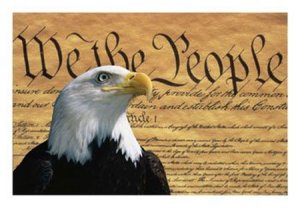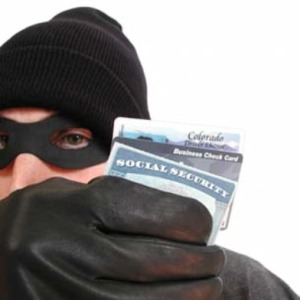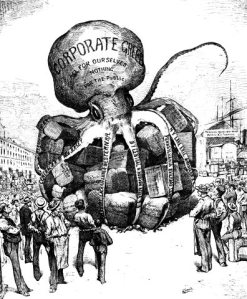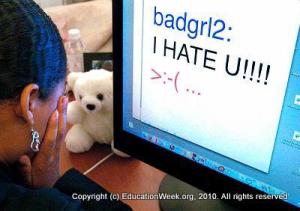We are all equal. Let’s stop hatred, intolerance and bigotry. End cyber-harassment and online defamation. NoH8!
 What is Free Speech? What is it not? Those are critical questions for which so many have differing opinions. The First Amendment provides Americans with the right to freedom of speech (in addition to freedom of press, freedom of religion, freedom of assembly and freedom of petition). As a framework created by our founding fathers to provide general protection for all citizens from government abuses and ensure individuals the rights of life, liberty, and the pursuit of happiness, the Constitution is one of our country’s most important legislative documents. The first 10 amendments form The Bill of Rights (which was later amended to guarantee basic rights to women, non-whites, and the poor). Freedom of speech, as granted by the first amendment, gives the general right to everyone – from scholars, to idiots, to racists, to regular people – to speak out on almost any topic. However, this right does not allow people to engage in criminal behavior nor does it guarantee anonymity. Far too many misguided individuals simplify an amendment that constitutional scholars have spent the past 230+ years debating and refining (this last point is critical in understanding that the constitution is a living document and why it has been “amended” over the past 230 year). Lest we forget that the 13th and 19th amendments had to be explicitly added in order to abolish slavery and to provide women the right to vote, respectively.
What is Free Speech? What is it not? Those are critical questions for which so many have differing opinions. The First Amendment provides Americans with the right to freedom of speech (in addition to freedom of press, freedom of religion, freedom of assembly and freedom of petition). As a framework created by our founding fathers to provide general protection for all citizens from government abuses and ensure individuals the rights of life, liberty, and the pursuit of happiness, the Constitution is one of our country’s most important legislative documents. The first 10 amendments form The Bill of Rights (which was later amended to guarantee basic rights to women, non-whites, and the poor). Freedom of speech, as granted by the first amendment, gives the general right to everyone – from scholars, to idiots, to racists, to regular people – to speak out on almost any topic. However, this right does not allow people to engage in criminal behavior nor does it guarantee anonymity. Far too many misguided individuals simplify an amendment that constitutional scholars have spent the past 230+ years debating and refining (this last point is critical in understanding that the constitution is a living document and why it has been “amended” over the past 230 year). Lest we forget that the 13th and 19th amendments had to be explicitly added in order to abolish slavery and to provide women the right to vote, respectively.
 Free speech in America, as outlined in the First Amendment, is not limitless and comes with boundaries and responsibilities. It does not guarantee anonymity nor does it protect criminal behavior. For example, the first amendment does not protect the following behaviors:
Free speech in America, as outlined in the First Amendment, is not limitless and comes with boundaries and responsibilities. It does not guarantee anonymity nor does it protect criminal behavior. For example, the first amendment does not protect the following behaviors:
All of the actions listed above have been done (and continue to be done) anonymously, on the web by misguided individuals, cowards, and criminals. Harassment, defamation, hate speech, identity theft, child pornography are rampant on the internet and are posted by anonymous persons who believe they cannot be traced. When those engaging this this behavior are tracked down, they often hide behind the “right of free speech”.
We must remember that all American citizens have basic, unalienable rights granted by the Declaration of Independence. It grants us the right to life, liberty, and the pursuit of happiness; this right is not secondary to free speech. None of the Constitutional amendments protect criminal behavior, and all are limited by civil and criminal laws, for which we should all be thankful.
 True anonymous speech is a wonderful and important privilege that we have in the country. Whistle blowing protects consumers against corporate greed and malfeasance. It allows citizens to report crimes in their communities without fear of negative repercussion. It protects citizens against government backlash. Anonymous voting allows citizens to freely express their political beliefs. Anonymous free speech is a positive and productive factor in our society and is not the same as criminal behavior. Whistle-blowing and voting are not the same as anonymous criminal behavior (like harassment, child porn, defamation, ect). Only cowards and criminals compare the two.
True anonymous speech is a wonderful and important privilege that we have in the country. Whistle blowing protects consumers against corporate greed and malfeasance. It allows citizens to report crimes in their communities without fear of negative repercussion. It protects citizens against government backlash. Anonymous voting allows citizens to freely express their political beliefs. Anonymous free speech is a positive and productive factor in our society and is not the same as criminal behavior. Whistle-blowing and voting are not the same as anonymous criminal behavior (like harassment, child porn, defamation, ect). Only cowards and criminals compare the two.
As I enter this new year, I do so grateful for all of my blessings in life and proud to be a citizen of the United States. Given the complexity of the world wide web, I can only hope that my fight against online harassment and defamation helps others who are dealing with similar issues. What is free speech to me? Free speech is a wonderful right that I have as an American…that does not protect harassers, pedophiles, and other criminals.
 I, Carla Franklin, have been the subject of recent media regarding my petition for information of Google, Inc, regarding an ongoing matter of harassment. This unfortunate and unwanted media buzz occurred when the August 17, 2010 petition, known as an Order to Show Cause (not a lawsuit for money) was leaked to or shown to the press without my knowledge or consent.
I, Carla Franklin, have been the subject of recent media regarding my petition for information of Google, Inc, regarding an ongoing matter of harassment. This unfortunate and unwanted media buzz occurred when the August 17, 2010 petition, known as an Order to Show Cause (not a lawsuit for money) was leaked to or shown to the press without my knowledge or consent.
Several news articles have been written about my case; most were inaccurate, relied upon limited information in the court filing and took details out of context.
The truth about me is that I am management consultant, who has been gainfully employed as a full-time consultant since receiving my undergraduate degree.
I have been dealing with ongoing obsessive and harassing behavior since 2006. Despite ignoring phone calls, e-mails, changing my number, trying to be nice, and hoping that the obsessive behavior would stop, the behavior continued over a four-year period. Last year, things escalated online. An anonymous YouTube account was created to make a YouTube channel or “shrine” dedicated to me, using video clips of me talking to a friend. The personal information that was included and the obsessive, “shrine-like” nature of this You-Tube channel scared me. Several weeks after the YouTube “shrine” was removed, another anonymous YouTube account was created and used to comment on video clips of me created by Columbia Business School. The comment left on the clips was “whore.”
I am asking Google, Inc. for information about the person who is harassing me online because I believe it is equally as dangerous as the harassment that has occurred in person, and if I pursue legal remedies I don’t want anonymous online activities to be excluded from this person’s damaging pattern of behavior.
In summary:
- I am not seeking money from Google/YouTube. I am following the normal, required process to seek information. Because internet harassment laws are currently non-existent, I had to pursue a civil route to gather information on my harasser. If these activities had happened through the mail, over the phone, or in person, I could have gone directly to law enforcement to remedy the issue. Tougher internet legislation (like the Stalker Act of 2010) needs to be passed.
- Google/YouTube and other internet product providers have invested limited time and resources into measures that allow individuals to protect themselves from harassment and stalking.
My case is about a pattern of online and offline abuse and the right of an individual like myself to link these two elements in a legal case. There are laws to protect us from harassment in person. The internet should not become a place for anonymous harassers to hide. For more detail on the mater, please see the link below. It references the only interview that I’ve done on this matter. —> http://www.cbsnews.com/video/watch/?id=6797340n
Current criminal laws protecting citizens against cyber-harassment are scant or non-existent. Those who find themselves at the mercy of “anonymous” trolls and online bullies generally have to use civil measures of “Defamation” or “Copyright Infringement” to get information from Google, Yahoo, and other online content providers in order to pursue criminal remediation against harassers. Legislation must be passed to protect others from the same behavior that I, Erin Andrews, and most recently Tyler Clementi had to endure. More unnecessary tragedy and suffering will occur until the laws catch-up with the crimes of the internet.